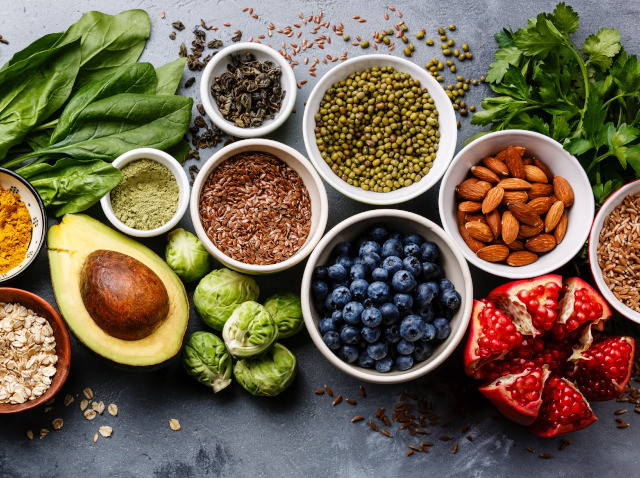A new study by researchers at the University of Sydney in Australia confirms that managing your diet properly is a far more powerful approach to the fight against diseases of aging and your metabolism than any of the currently available drugs. And it’s much more pleasant, too!
 Common antioxidant foods: The key to dietary control of metabolic disorders and diseases of aging.
Common antioxidant foods: The key to dietary control of metabolic disorders and diseases of aging.
The new study is the latest in a series by the same team, headed by Dr. Stephen Simpson, that started with a proof of concept in mice. The experiments consistently showed that nutrition, including overall calories and macronutrient balance, had a greater impact on aging and metabolic health than three drugs commonly used to treat diabetes and slow ageing.
“Given humans share essentially the same nutrient-signalling pathways as mice, the research suggested people would get better value from changing their diet to improve metabolic health rather than taking the drugs we studied,” Simpson says.
The latest mouse-based study involved 40 different nutrient combinations each with varying levels of protein, fat and carbohydrate balance, calories and drug content.
Specifically
The team found that drugs often suppressed the effects of aging or certain metabolic ills, but did not address the cause. Diet management, on the other hand, tended to go to the causes of these basic conditions resulting in a ‘cure’. And diet-oriented treatments were a lot easier on the liver, an organ that is key to regulating the metabolism and prone to damage from some drugs.
A contrarian approach
The Sydney project took a contrarian approach to most current research, which is concentrating on developing drugs to target diseases and conditions associated with aging and metabolic imbalance.
“Diet is a powerful medicine. However, presently drugs are administered without consideration of whether and how they might interact with our diet composition — even when these drugs are designed to act in the same way, and on the same nutrient-signalling pathways as diet,” Simpson observes.
Effects at the cellular level
Protein and total calorie intake had a particularly powerful effect not just on metabolic pathways, but also on fundamental processes that control the way our cells function.
For example, the amount of protein eaten influenced activity in the mitochondria, which are the part of cells that produce energy.
The bottom line
“We all know what we eat influences our health, but this study showed how food can dramatically influence many of the processes operating in our cells,” study lead author Dr. David Le Couteur sums up. “This gives us insights into how diet impacts on health and ageing.”
My take
I like the notion that changes in diet, rather than simply pumping pills, can better treat some of the most basic and serious ills we al face, especially as we get older. I’ve often used the term ‘magic bullet’ in a pejorative sense to describe disease-specific drugs, the goal of prevailing high-profile clinical and laboratory-based searches for ways to control or eliminate such scourges as obesity, heart disease, immune dysfunction and risk of metabolic diseases, such as type 2 diabetes. It’s about time someone in the learned community did some serious, wide-ranging, in-depth investigation into natural, diet-based ways we can make ourselves healthier.
Drugs to treat specific ills have only really been available to us for a little over 100 years. Before that. Folks relied on their own and handed-down knowledge of how certain plants and mineral substances could help heal wounds and alleviate symptoms. Those ‘cures’ proved so powerful and effective that folks who had the knowledge were held in high esteem – some called them ‘medicine keepers’ or ‘shamans’. Or witches. But that’s a different story, for a different blog. Is the emphasis on natural, diet-based medicine coming full circle?
~ Maggie J.

